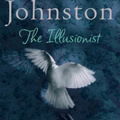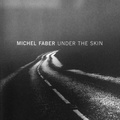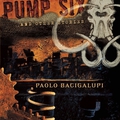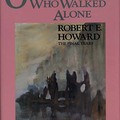John Barth: The End of the Road
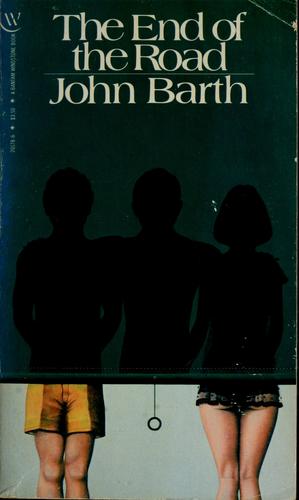
When I was at university, this book was one of the cult novels in my circle of friends. We read, reread and discussed it constantly, we analyzed its humour and philosophy all the time and the first sentence („In a sense, I am Jacob Horner.”) became a saying we quoted to each other on a daily basis. And though I’m not at university anymore, The End of the Road is still one of those novels I can reread and enjoy anywhere, anytime.
The antihero of the novel is the afore-mentioned Jacob Horner who periodically suffers from a strange psychiatric condition: when he is presented with a lot of different options to choose from, sometimes he is bewildered by the choices to the extent that he is unable to move. His doctor urges him to find a job where he can follow a huge number of rules, because the regularity of such a job will always enable him to choose from his options. Jacob Horner follows his doctor’s advice and accepts a position as a teacher of English grammar in a school in Wicomico. While there, he meets his fellow teacher, Joe Morgan, an excessively self-consistent man who has a rational explanation for everything, and his wife, Rennie. The three become friendly, and the rest of the novel consists of their conversations, their attempts to persuade the others out of their beliefs and opinions, and the power games they play – until all this talking leads to certain tragic consequences.
The End of the Road is a deeply philosophical novel, and it’s mainly concerned with the basic problems and questions of existentialism. Barth sometimes treats these themes seriously, but his approach is more often ironic. For instance, the starting point of the novel is realistic and absurd at the same time: Jacob Horner has a paralysis attack when he has to decide which town to travel to with the 20 dollars he has in his pocket. The ticket clerk names four different towns but Jacob is unable to choose from them. It’s not that he’s afraid of the consequences of his decision – he cannot decide because none of the four names mean anything to him and none of the towns interest him more than the other three, so he feels that selecting any one of the four is simply not worth the trouble.
For Jacob, freedom is a restrictive factor, but he can function as a more or less healthy human being if he is provided with straightforward instructions as to how to choose from his options. What further complicates Jacob’s condition, however, is the fact that he has no personality and no opinions about anything. Or, as Jacob likes to put it, the problem is that in fact he has several personalities and several opinions about everything, and he’s capable of alternating between his personalities and opinions at a moment’s notice, what’s more, he is able to hold and voice several, mutually exclusive opinions about any subject at the same time, and this leads to his inability to decide.
Jacob’s lack of opinions and personality is contrasted with Joe Morgan’s unchanging personality, inner consistency and steady opinions. Joe has an opinion about virtually everything, each of his actions derives from certain underlying principles and base virtues, and he can go on analyzing everything he does for hours. His wife, Rennie is a paler version (disciple) of Joe: her earlier, immature personality was completely overwritten by Joe – partly with the help of his persuasive discourse and partly with the help of some domestic violence. Their smug, complacent life is deeply disturbed by Jacob’s incomprehensible personality, chaotic mind, indifference, amorality and inconsistency. The Morgans are unable to find a place for Jacob in their own, thoroughly cathegorized world, and they seriously play with the idea that since perhaps a man is nothing more than the sum of his opinions, and Jacob keeps voicing mutually exclusive opinions all the time, it may be that he doesn’t even exist.
All this talking is very entertaining for a while, but then philosophy is put into practice, and the seemingly innocent, harmless quarrels and debates lead to a tragedy – one from which, predictably, only Jacob Horner, a person with no personality and with nothing to lose emerges unscathed.
And speaking about personality and the lack of thereof: I think it’s a touch of genius that the three protagonists of the novel are a person with no personality, a person with too strong a personality, and a person with a copycat personality. Because of this, the interactions between Jacob, Joe and Rennie never for a moment become boring, and the relations between them give rise to several interesting questions: to what extent is one allowed to deliberately influence the other’s personality? Where does one person’s personality start and where does the other’s personality end? And anyway: what constitutes someone’s personality?
Intriguing points, intriguing novel. It’s definitely worth reading.
The antihero of the novel is the afore-mentioned Jacob Horner who periodically suffers from a strange psychiatric condition: when he is presented with a lot of different options to choose from, sometimes he is bewildered by the choices to the extent that he is unable to move. His doctor urges him to find a job where he can follow a huge number of rules, because the regularity of such a job will always enable him to choose from his options. Jacob Horner follows his doctor’s advice and accepts a position as a teacher of English grammar in a school in Wicomico. While there, he meets his fellow teacher, Joe Morgan, an excessively self-consistent man who has a rational explanation for everything, and his wife, Rennie. The three become friendly, and the rest of the novel consists of their conversations, their attempts to persuade the others out of their beliefs and opinions, and the power games they play – until all this talking leads to certain tragic consequences.
The End of the Road is a deeply philosophical novel, and it’s mainly concerned with the basic problems and questions of existentialism. Barth sometimes treats these themes seriously, but his approach is more often ironic. For instance, the starting point of the novel is realistic and absurd at the same time: Jacob Horner has a paralysis attack when he has to decide which town to travel to with the 20 dollars he has in his pocket. The ticket clerk names four different towns but Jacob is unable to choose from them. It’s not that he’s afraid of the consequences of his decision – he cannot decide because none of the four names mean anything to him and none of the towns interest him more than the other three, so he feels that selecting any one of the four is simply not worth the trouble.
For Jacob, freedom is a restrictive factor, but he can function as a more or less healthy human being if he is provided with straightforward instructions as to how to choose from his options. What further complicates Jacob’s condition, however, is the fact that he has no personality and no opinions about anything. Or, as Jacob likes to put it, the problem is that in fact he has several personalities and several opinions about everything, and he’s capable of alternating between his personalities and opinions at a moment’s notice, what’s more, he is able to hold and voice several, mutually exclusive opinions about any subject at the same time, and this leads to his inability to decide.
Jacob’s lack of opinions and personality is contrasted with Joe Morgan’s unchanging personality, inner consistency and steady opinions. Joe has an opinion about virtually everything, each of his actions derives from certain underlying principles and base virtues, and he can go on analyzing everything he does for hours. His wife, Rennie is a paler version (disciple) of Joe: her earlier, immature personality was completely overwritten by Joe – partly with the help of his persuasive discourse and partly with the help of some domestic violence. Their smug, complacent life is deeply disturbed by Jacob’s incomprehensible personality, chaotic mind, indifference, amorality and inconsistency. The Morgans are unable to find a place for Jacob in their own, thoroughly cathegorized world, and they seriously play with the idea that since perhaps a man is nothing more than the sum of his opinions, and Jacob keeps voicing mutually exclusive opinions all the time, it may be that he doesn’t even exist.
All this talking is very entertaining for a while, but then philosophy is put into practice, and the seemingly innocent, harmless quarrels and debates lead to a tragedy – one from which, predictably, only Jacob Horner, a person with no personality and with nothing to lose emerges unscathed.
And speaking about personality and the lack of thereof: I think it’s a touch of genius that the three protagonists of the novel are a person with no personality, a person with too strong a personality, and a person with a copycat personality. Because of this, the interactions between Jacob, Joe and Rennie never for a moment become boring, and the relations between them give rise to several interesting questions: to what extent is one allowed to deliberately influence the other’s personality? Where does one person’s personality start and where does the other’s personality end? And anyway: what constitutes someone’s personality?
Intriguing points, intriguing novel. It’s definitely worth reading.

